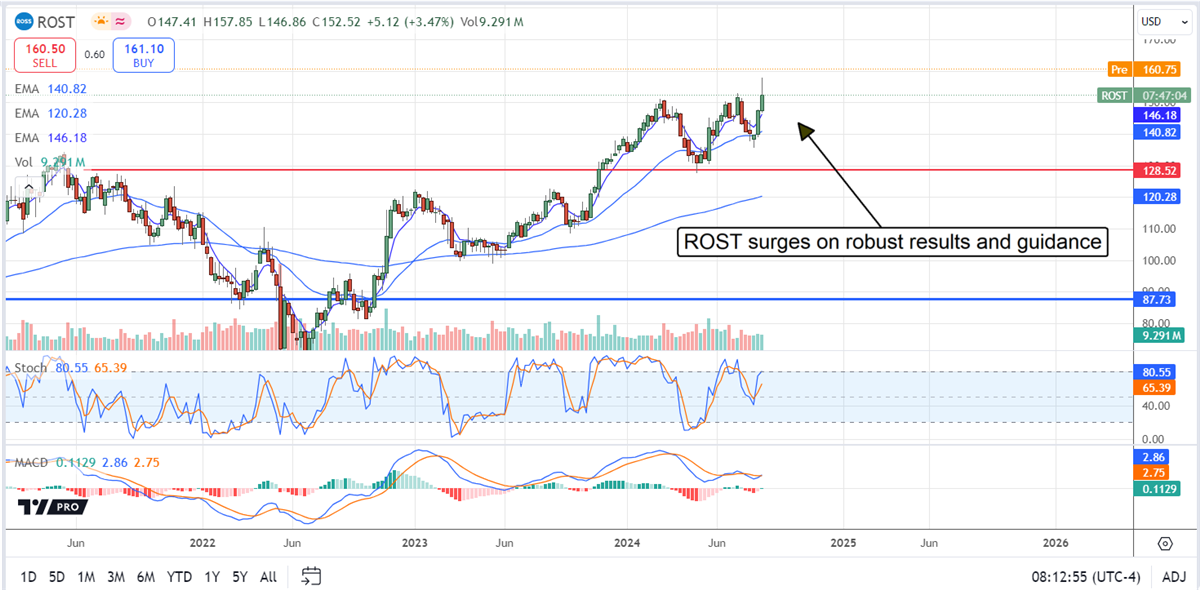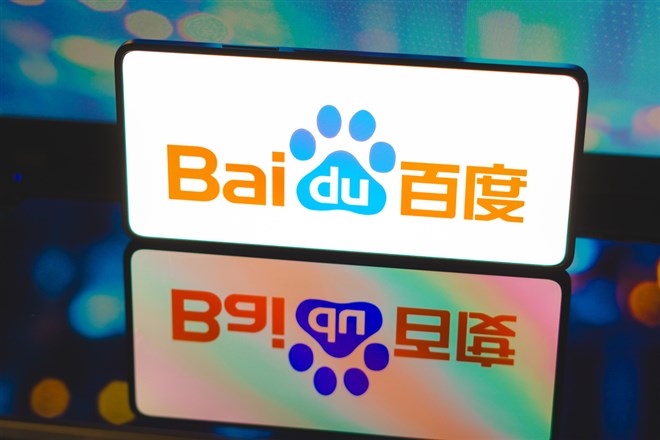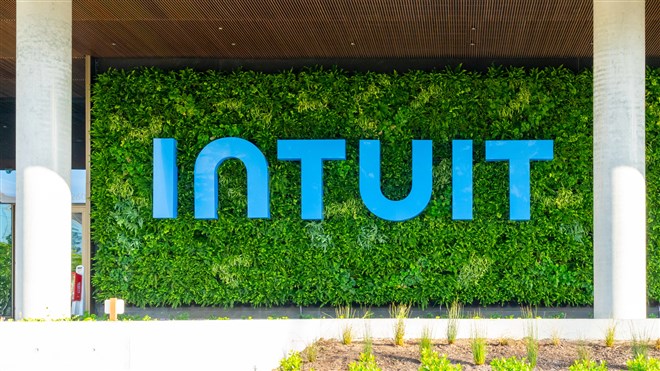Ticker Reports for August 25th
Baidu's Strong Quarter Proves a Smart Pick for Michael Burry
Recently, investors have had the chance to gain insight into the portfolios of Wall Street’s mega investors, from Warren Buffett and his multi-billion dollar positions and portfolio shifts to Michael Burry and his not-so-contrarian value investments. Michael Burry directly goes against popular culture and opinion by allocating some of his capital to Chinese stocks.
Valuations have been kept compressed for China’s stock market, as geopolitical risks and fears of investing in overseas markets have caused investors to avoid investing in Asia’s powerhouse. However, this time, Burry is not alone. While his first pick, Alibaba Group (NYSE: BABA), may have been picked up by others like George Soros, Burry made a classic individual move into another technology blue-chip.
By making Baidu Inc. (NASDAQ: BIDU) one of his top five stock picks in his portfolio, Burry can—like other investors—be exposed to China’s growth in data and communications, as Baidu can be considered China’s Alphabet Inc. (NASDAQ: GOOGL).
After the company reported its second quarter 2024 earnings results, its stock was lower by 4.4% during the trading session, but that only adds to the potential upside to be had in the coming months.
Baidu's Financials Highlight Why Investors Should Give the Stock a Second Look
Management states in the company's quarterly earnings release that despite ongoing headwinds in the Chinese economy, investors should have nothing to worry about. Artificial intelligence and cloud business revenue offset the declines in small businesses' advertising budgets.
However, as the Chinese government continues to apply economic stimulus measures, which have already had an effect through continuously expanding manufacturing PMI indexes and positive inflation readings for every month of 2024, investors have new reasons to believe more upside could lie ahead.
Revenue jumped by as much as 12% over the past quarter for the Baidu core business, significantly above the national inflation rate to signify rising consumer demand. Because of the compressed business cycle in China right now, operating cost management is easier, so Baidu's operating income grew by a larger 24% in the quarter.
Knowing what Baidu is now capable of even during one of China's slowest business cycles, investors could find the current Wall Street forecast for 10.8% earnings per share (EPS) growth in the next 12 months. But this perspective doesn't have to be left to revision by analysts; here's what management has to say about the future.
By investing $301 million in a stock buyback program, management is broadcasting its bullish view of the stock's future. If the stock was cheap enough for management to buy, then Michael Burry may feel justified in keeping Baidu at the top of his portfolio.
Wall Street's Outlook on Baidu Stock and Its Future Potential
Despite the conservative forecasts for EPS growth set by Wall Street analysts currently, others are willing to reveal more realistic views for the company moving forward. Those at Citigroup landed on a $155 price target for Baidu stock as recently as July 2024.
To prove these targets right, the stock would have to rally by as much as 80.6% from where it trades today. Realizing that the government's economic stimulus, along with the inevitable Chinese economic recovery, could boost Baidu's earnings potential as part of the consumer sector, investors could start to take this upside more seriously.
These analysts weren't the only ones on Wall Street willing to risk their reputations for their views on Baidu stock; Primecap Management (Baidu stock's largest investor) boosted its position by as much as 17.2% during the past quarter, bringing its net investment up to $1 billion for 3.4% ownership in the company.
The concern is now centered around whether the stock offers enough of a discount today. On a price action basis, Baidu only trades at 57% of its 52-week high price, creating enough of a gap for investors to consider.
But, the crystalizing factor comes through Baidu's valuation multiples. Trading at a price-to-book (P/B) ratio of 0.8x would not only place Baidu at a discount to its book but also significantly below the rest of the computer sector's average valuation of 6.9x P/B.
While this stock does not pay a dividend yet, to cushion any volatility that investors might encounter by holding it, Baidu's consistently positive free cash flow generation can offer some of the compounding effects of reinvesting back into high-margin operations in a growing economy.
Goodbye to Cash: The Era of the Digital Dollar Revolution Begins
Something critical just happened... In June the BRICS nations — Brazil, Russia, India, China, and South Africa — met. They weren't just chatting about trade. No, they were plotting to dismantle the dominance of the U.S. dollar in global trade. A new trade system, free from the dollar. What does that spell for the dollar's future? Trouble.
Download Your FREE Guide Now >>Intuit Beats Q4 Earnings: AI, Dividends, and a Growth Strategy
Intuit Inc. (NASDAQ: INTU) is the financial technology powerhouse behind TurboTax, Credit Karma, QuickBooks, and Mailchimp. The company continues to demonstrate its dominance in the market with the release of Intuit’s earnings report for the fourth quarter and full year of 2024. Intuit’s financial report exceeded analysts' expectations and showcased its strength and resilience in a dynamic economic environment.
Intuit Beats Expectations: Dissecting the Numbers
Intuit's earnings release was impressive as the company reported a 13% surge in full-year revenue, reaching a remarkable $16.3 billion. This growth can be attributed to the strong performance across all segments, with the Small Business and Self-Employed Group leading the charge. The company's combined platform revenue, which includes the Small Business and Self-Employed Group Online Ecosystem, TurboTax Online, and Credit Karma, witnessed a 14% increase, reaching $12.5 billion. This underscores the success of Intuit's strategic focus on building an integrated platform that caters to a diverse range of financial needs.
A closer look at the segment-specific performance reveals the key drivers of this growth. The Small Business and Self-Employed Group reported a 19% increase in revenue, driven by the continued strength of QuickBooks Online, which experienced a 19% revenue increase for the year. This growth can be attributed to a combination of factors, including an expanding customer base, higher effective prices, and a strategic shift in product mix. Additionally, the Online services revenue within this segment surged by 21% for the year, fueled by growth in payments, payroll, capital, and Mailchimp. This highlights Intuit's ability to capitalize on the growing demand for online financial solutions among small businesses.
Intuit's Consumer Group, which includes the popular TurboTax, also delivered a strong performance, with revenue growing by 7% to reach $4.4 billion. TurboTax Live, the premium offering that provides users with on-demand access to tax experts, was a standout performer, with revenue surging by 17%. This growth underscores the increasing demand for personalized and expert-driven tax solutions.
Credit Karma and ProTax: Expanding the Ecosystem
While the Small Business, Self-Employed, and Consumer Group were the primary growth drivers, Credit Karma and the ProTax Group contributed to Intuit's overall success. Credit Karma, which provides free credit scores and personalized financial recommendations, achieved a 5% revenue growth, reaching $1.7 billion for the year. This growth was driven by strength in areas like auto insurance, personal loans, and credit cards. Furthermore, Credit Karma Money, a platform that offers digital banking and financial management tools, continues to gain traction in the market.
The ProTax Group, which caters to tax professionals, also demonstrated solid growth with a 7% increase in revenue for the year. This growth reflects the continued reliance of tax professionals on Intuit's software and services to manage their clients' tax needs effectively.
Intuit's Global Expansion and Strategic Evolution
Intuit's commitment to global expansion is evident in its 13% annual growth in international online revenue on a constant currency basis. This international growth, coupled with the robust performance of its core segments, has prompted a strategic renaming of the Small Business and Self-Employed Group to the Global Business Solutions Group. This new name better reflects Intuit's expanding global footprint and ambition to become the preferred platform for businesses of all sizes, from small startups to mid-market enterprises.
Investing in the Future: Capital Allocation Strategy
Intuit's financial performance has enabled the company to invest strategically in its future growth.
During fiscal year 2024, the company repurchased $2.0 billion of Intuit stock, demonstrating confidence in its long-term prospects.
Furthermore, the Board approved a new $3.0 billion repurchase authorization, giving the company a total authorization of $4.9 billion to repurchase shares.
In addition to share repurchases, Intuit’s dividend increased by 16% to $1.04 per share, payable on October 18, 2024, highlighting Intuit's commitment to returning value to its shareholders.
Charting the Course: Future Guidance and Strategic Pillars
Looking ahead, Intuit has provided strong guidance for fiscal year 2025. The company projects revenue to be between $18.160 billion and $18.347 billion, representing a growth of approximately 12% to 13%. This optimistic outlook is supported by continued growth across all segments, with the Small Business and Self-Employed Group expected to lead the charge with a projected growth of 16% to 17%.
Intuit's strategy is anchored in its artificial intelligence (AI) driven expert platform. This innovative approach leverages the power of artificial intelligence to deliver personalized financial solutions, simplify complex tasks, and empower users to make informed decisions. This strategy is further bolstered by the company's "Five Big Bets" strategy, which is focused on areas that drive innovation and long-term growth. These include revolutionizing speed to benefit, connecting people to experts, unlocking smart money decisions, disrupting the small business mid-market, and becoming an AI-driven expert platform.
Analysts Echo Optimism Around Intuit’s Strategic Vision and Growth
Intuit’s analyst community has largely echoed Intuit's optimism. Many have praised the company's strong financial performance, strategic vision, and ability to adapt to evolving market dynamics. The consensus among analysts is that Intuit is well-positioned for sustained growth in the years to come, driven by its innovative product portfolio, strong customer relationships, and expanding global footprint.
Intuit: A Future Forged in Innovation and Customer-Centricity
Intuit's fourth-quarter and full-year 2024 earnings report reveals a company performing exceptionally well. The company's impressive financial results, forward-looking strategy, and commitment to customer-centric innovation provide a picture of a business poised for continued success. Intuit's strategic investments in AI, its focus on global expansion, and its unwavering commitment to solving customer problems position it as a leader in the financial technology space. As Intuit continues executing its strategic roadmap, it is well-equipped to deliver long-term value to its investors and solidify its position as a driving force in financial technology.
Crypto Bloodbath - Opportunity or Game Over?
Stocks recently suffered the worst 1-day loss since 2022…
Cryptos got hammered as well…But here's the fact everyone is missing…
As of this writing, Bitcoin is still up 28% year to date…And it's up 84% in the last year.
Ross Stores Investors Win Big as Off-Price Retailers Outperform
Unsurprisingly, off-price retailers like Ross Stores (NASDAQ: ROST) and TJX Companies (NYSE: TJX) outperform. The off-price retail segment is well-positioned after years of economic turmoil, including supply chain logjams, high inflation, high interest rates, and the ensuing inventory bloat seen among apparel manufacturers and major retailers.
Today, consumers are flocking to off-price retailers because of the value they bring to the table, and the off-price retailers have what consumers want. They’ve judiciously managed inventories and sustained fortress balance sheets, and they are faced with what TJX CEO Ernie Herrman described as “excellent buying opportunities” in the marketplace, ready to continue outperforming in the second half.
Ross Stores Surges to New Highs; Higher Highs Are Indicated
Ross Stores' Q2 was outstanding. The company reported $5.29 billion in net sales to produce industry-leading growth. The gains are driven by a 4% comp-store gain compounded by a 4.2% increase in store count. Comps are underpinned by increased ticket count and size, providing leverage for the bottom line. All regions performed well, with cosmetics and children's categories producing noteworthy strength. Strength in cosmetics is unsurprising given the strengths shown by Ulta Beauty (NASDAQ: ULTA) and e.l.f. Beauty (NYSE: ELF).
Margin news is also good. The company widened its operating margin by 115 basis points to 12.5% on increased sales leverage and declining costs. The net result is $527 million in income or $1.59 per share in GAAP EPS, 670 basis points more than forecasted by analysts' consensus.
Guidance is cautious, taking note of economic conditions, but optimistic as well. The company expects Q3 and Q4 sales to remain solid, with comps up 2% and 3% and full-year EPS near $6.06. That’s good for 9% growth, including the impact of last year’s extra 53rd week, and 13% growth when adjusted. Analysts had expected worse.
Analysts Raise Targets for Ross Stores
The analysts' response is robust. MarketBeat.com tracked more than a dozen revisions within the first 24 hours with all including a price target increase. The net result is that the consensus estimate increased more than 5%, up 30% in the last 12 months, indicating a move to $165 or higher is likely. The $165 target is sufficient for a new all-time high and will likely be reached soon. Most fresh targets are between $175 and $190 or 15% to 25% above the pre-release closing price.
Capital return and balance sheet health are central to the value. The company pays a safe and reliable $1.47, worth about 1.0% annual yield in 2024, and is expected to increase the payout at year’s end. Ross Stores pays less than 25% of its earnings and can sustain annual increases. Share buybacks are also in play. The company reduced the share count by a 1.9% average for Q2 and is on track to meet the 2024 goal of $1.05 billion in repurchases.
Regarding the balance sheet, current and total assets are up across the board, with cash up nearly 2% to $4.6 billion. Liabilities are also up but offset by a decline in long-term debt, leaving equity up 15% and leverage ultra-low. Long-term debt is now 0.3x equity.
Ross Stores Surges 5%; Another Double-Digit Gain Is Likely
Ross Stores' share price surged by 5% following the release and is likely to head higher. The jump in price action is supported by a budding technical Buy signal that could result in a sustained rally. In that scenario, Ross Stores' business will continue shining in the second half, leading analysts to increase their price targets and leading this market even higher. The risk now is that profit-taking will cap gains at the market open, leading ROST stock into a trading range.







0 Response to "🌟 Baidu's Strong Quarter Proves a Smart Pick for Michael Burry"
Post a Comment